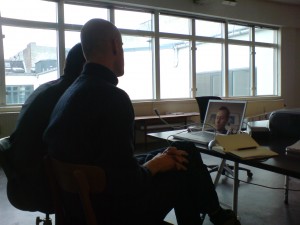Planning a successful meeting is a process, no matter how it’s done. Depending on the medium (conference call, virtual meeting or in person), that process may or may not change in order to encourage full participation from all key members and increase follow-through after the meeting.
Virtual meetings bridge geographical gaps to bring participants face-to-face who otherwise may not have the opportunity. However, engagement is often more of a challenge. In-person meetings can come with their own set of distractions as well. Both types of meetings come with their own set of issues, yet there are also a few that they have in common. Plan for these common problems when developing your meeting’s itinerary for a more effective meeting with better results.
Plan for the Best, Prepare for the Worst
Issues shared by virtual meetings and face-to-face meetings include:
- Inadequate planning regarding purpose, agenda, timing and which participants should be included.
- Participants joining the meeting late/leaving early.
- Low energy and participation due to lack of engagement generated by the meeting leader.
- Lack of focus and control, leading to inability to keep the meeting within time limits.
- Disbelief that the meeting will lead to any results, leading to boredom and lack of participation.
- Internal conflict or lack of respect, such as participants interrupting the leader or side conversations during the presentation.
- Lack of final consensus due to poor decision-making process or conflict/conflict-avoidance.
- Lack of call-to-action or follow-up process.
 The key to avoiding most if not all of these issues is proper preparation and expertise in meeting leadership. A professionally trained meeting facilitator can alleviate each of these issues within the meeting space, whether it is a digital space or a brick-and-mortar one, so that your meeting leads to positive results.
The key to avoiding most if not all of these issues is proper preparation and expertise in meeting leadership. A professionally trained meeting facilitator can alleviate each of these issues within the meeting space, whether it is a digital space or a brick-and-mortar one, so that your meeting leads to positive results.
Leadership Strategies creates strong business leaders and meeting facilitators though dynamic facilitation training courses that focus on developing the soft skills needed to effectively lead executive teams, such as facilitation, ledership, presenting, team building and more.
We also provide professionally trained facilitators to guide your company in areas like issue resolution, process improvement, strategic planning, requirements analysis, conference forums and partnering sessions.

